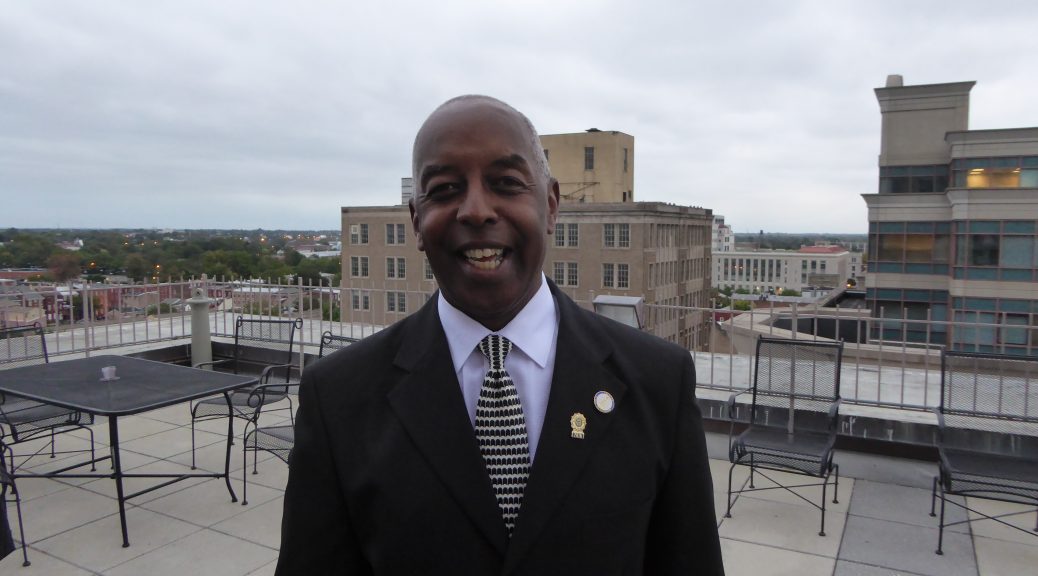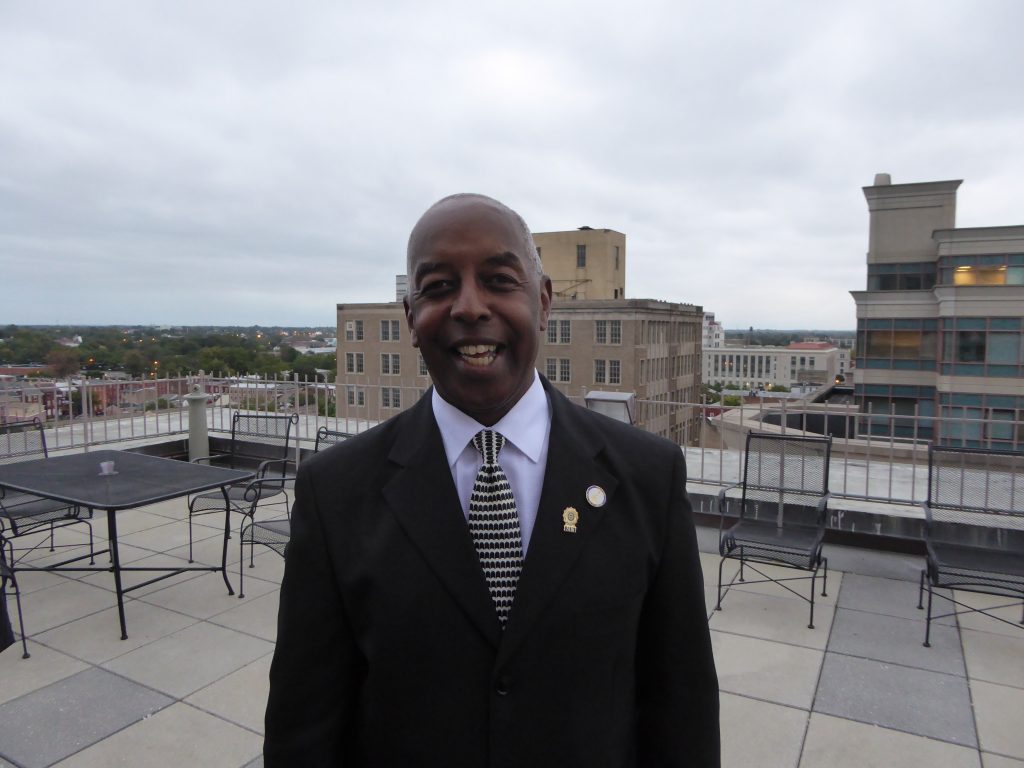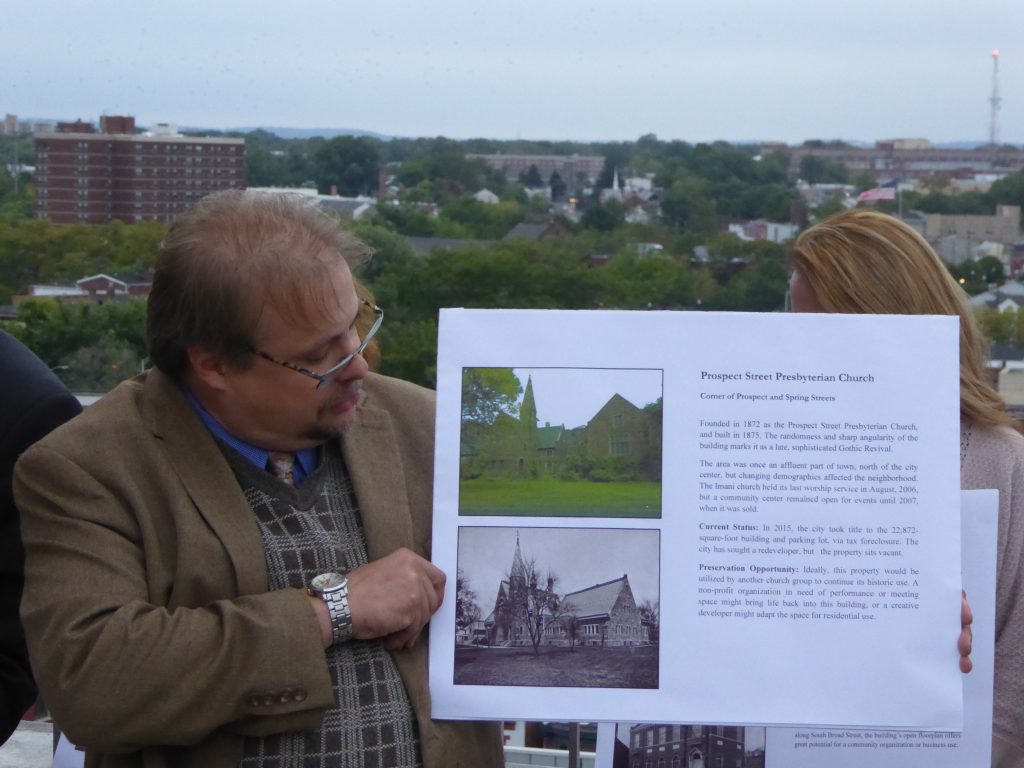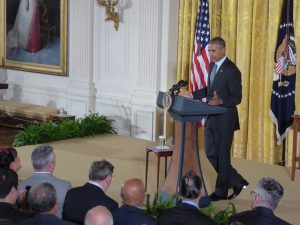By Ashbel Soto & Jon Hall
Food insecurity has become a major issue in Trenton, affecting the lives of families and children. Many children rely on school lunches for much of their dietary needs. The government has enacted a federal program to ensure that students in public schools do not go hungry. The National School Lunch Program (NSLP) is a federally assisted meal program that provides nutritionally balanced, free or low cost lunches to children every day. Its main objective is to provide a well balanced meal to students in an attempt to better their health and academic achievement. Many students who come from low-income families qualify for free or reduced lunch if they meet the criteria on the application provided by the Trenton Board of Education. The Trenton Central High Chambers released that about 58 percent of the student body population in the Trenton school district get free or reduced lunch. The NSLP requires that students meet a certain income bracket to qualify for free or reduced lunch. That income bracket ranges depending on the number of people per household. If there are two members in your household, then your average income should be $21,257. There are students who do not meet the income bracket, but they still cannot afford to pay the $2.57 daily for lunch meals in the Trenton Public Schools. Kadelta Sykes, the supervisor of Eickhoff Dining Hall and the supervisor of Food Services for Parker Elementary in Trenton, stated that the number of applicants for the free or reduced lunch program is increasing. “If most parents qualify for food stamps, then they are able to get free or reduced lunch,” said Sykes. “Most kids are ashamed to say they are on food stamps or free or reduced lunch, but it’s okay when you need the meal. Most parents fight for their kids to be accepted into the free or reduced lunch program because it lessens the burden of them having to pay for it.” Although every child receives a meal, are the portions adequate to satisfy a child’s hunger? “The portions are adequate because we provide fresh vegetables, hot vegetables, canned fruit, fresh fruit, juice and milk,” Sykes said. “We give children enough food for a lunch meal and fresh food to give them the nutrients they need.” There are also students who pay for lunch, but may sometimes not be able to afford it. “Most students do not pay for lunch, but those who do and cannot pay for lunch that day, we give them a cheese sandwich and fresh vegetables,” said Sykes. “Parker elementary has a program that requires students to have fresh fruits and vegetables with their meals. Often times, students ask for cheese sandwiches instead of a regular meal, so we prepare enough cheese sandwiches for the day to make sure there is enough for everyone. Our goal is to ensure that no student is left behind or hungry.” According to the Trenton School Board, there are approximately 200 students in the Trenton Public School system who are experiencing homelessness and often worry about when their next meal will be. Most students depend on school meals to feed them since they do not have cooked meals at home on a daily basis. The New Jersey Department of Agriculture stated that one of the objectives of the national school lunch program is to provide onethird of the recommended dietary allowances for lunch. However, there are students within the Trenton Public Schools who say the quality of the food is not appetizing enough for them. “I didn’t really eat school lunch. I would skip lunch most of the time and would wait till I got home to eat,” said a current junior biology major here at The College of New Jersey, who is a former student from Trenton West High School. “However, when I did eat the school lunch, the portions were okay to meet my needs.” She believes that the Trenton Board of Education should attempt to improve the quality of the lunches. Sykes has a different opinion on the quality of the food in Trenton Public Schools. “Every year the quality of the food gets better,” Sykes said. “ At first, fresh fruits and vegetables were only delivered two times a week. Now, delivery with fresh produce comes in four times a week. The cafeteria cannot sell snacks that are not state approved.
As of right now, we also sell baked chips to students with their lunches, which is healthier.” Food insecurity in Trenton has become an issue affecting the student body population. Trenton does not have many local or nearby grocery stores for many Mercer County residents, which makes it impossible for families without vehicles to go grocery shopping. Studies have shown that Trenton only has about three local supermarkets, which forces residents to reside on local fast food chains or bodegas (corner stores). This food desert problem in Trenton affects students academically because students find themselves skipping breakfast at home, giving them little room to focus on their school work and more on their hunger. The NSLP also provides breakfast for students, which satisfies their nutritional needs, enhances their attention span, allowing them to succeed academically. When a student’s hunger is satisfied, it gives them more room to concentrate on what is occurring in class and encourages them to participate more. However, Trenton Public Schools serve breakfast during a certain time frame, which many students have a hard time meeting. Students who take the bus are not liable for their late arrival to school. The school kitchen does not serve breakfast after the time is up — leaving students hungry. Sykes said that although students arrive late to school, most of the time, there are extra snacks left from breakfast that students are able to have. She added that if a child walks into the cafeteria after breakfast has been served, they’re allowed to get juice and a snack to take with them. Although there are many different views on the Trenton Public Schools food distribution, schools are ensuring that the children’s hunger needs are met. With an 11.9 percent poverty rate in the Mercer County area, it is probable that the number of children on free or reduced lunch will increase. The Trenton school district is doing everything to ensure that their children have the proper healthy meals each day.




